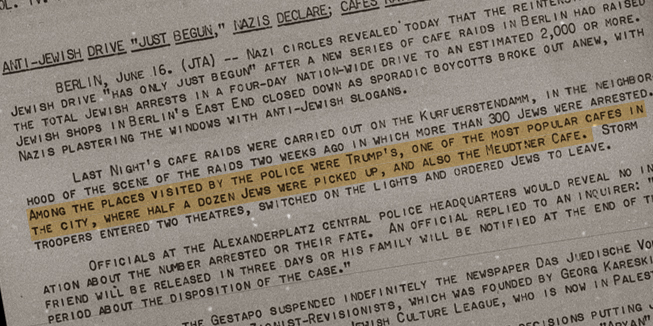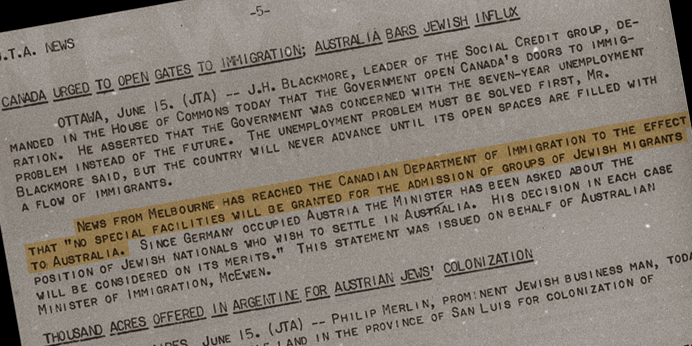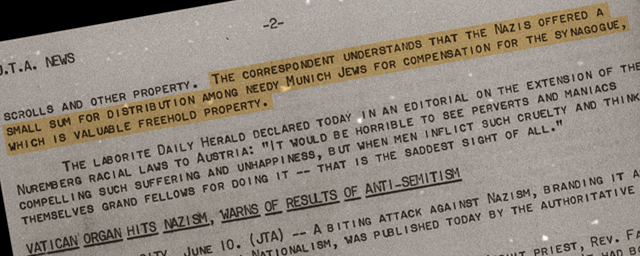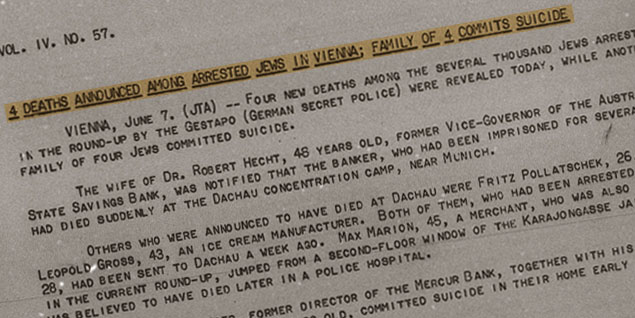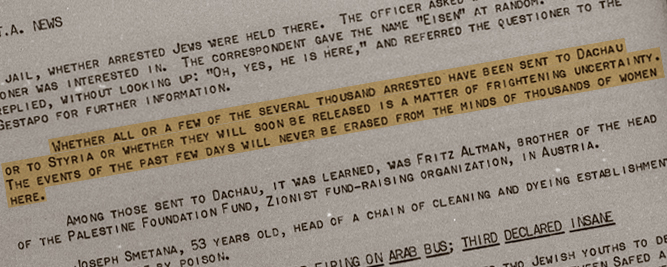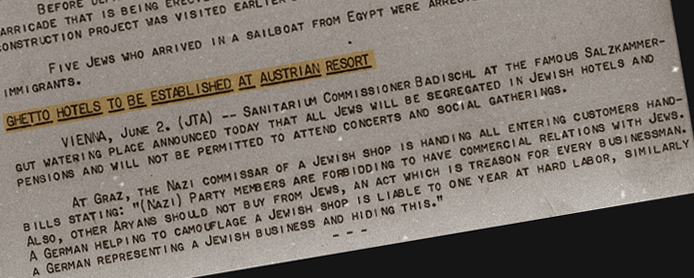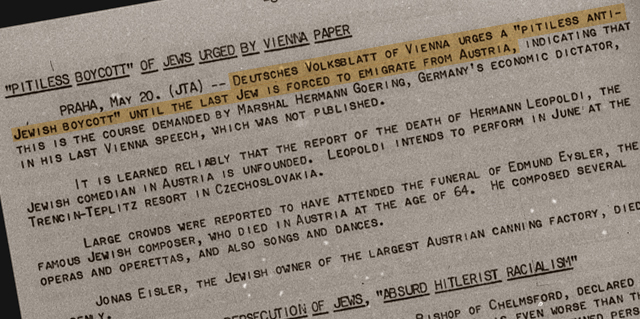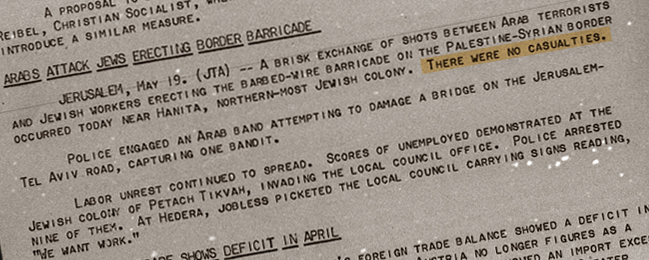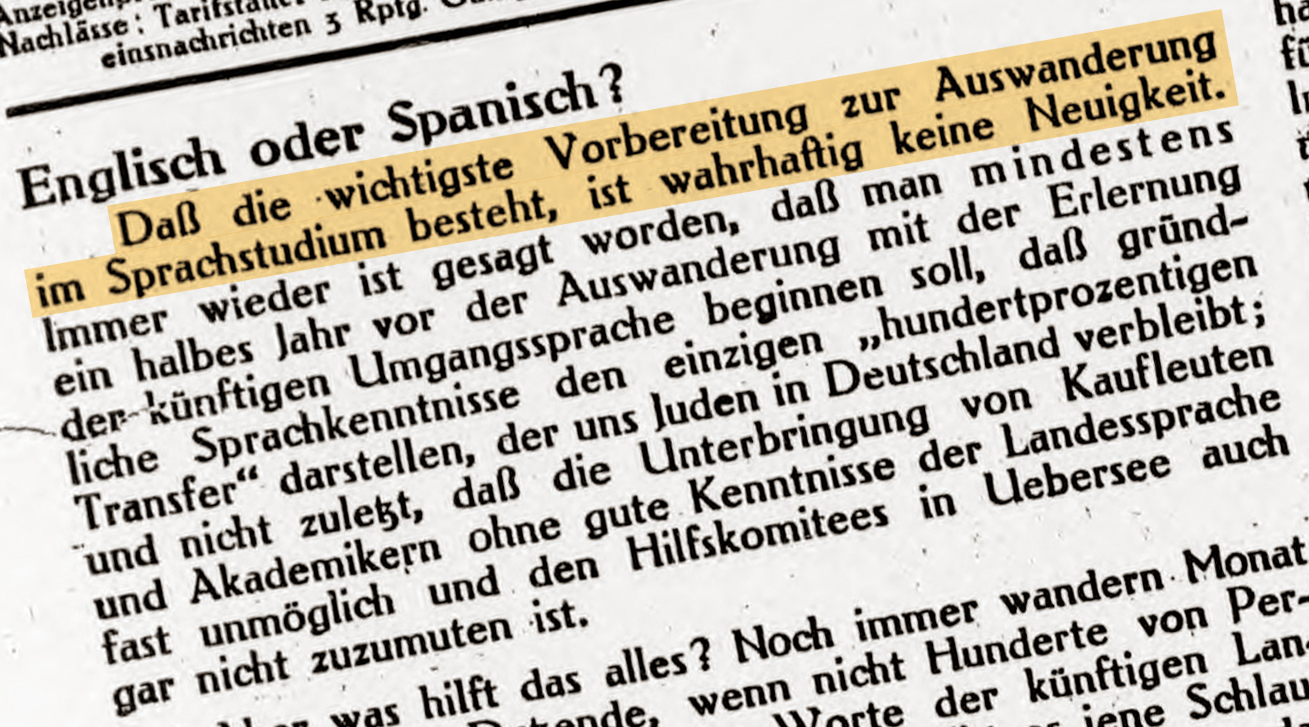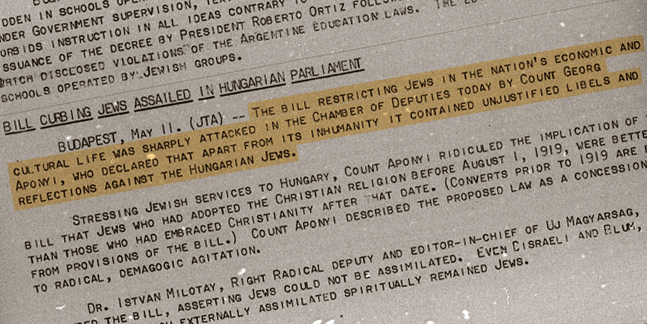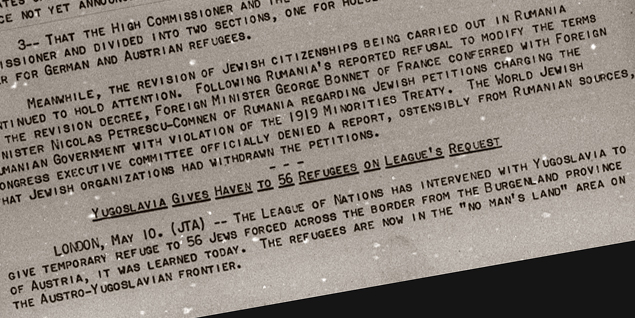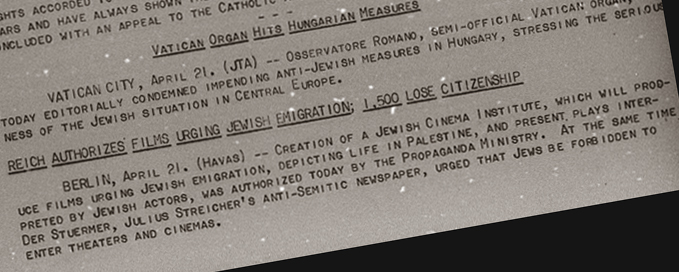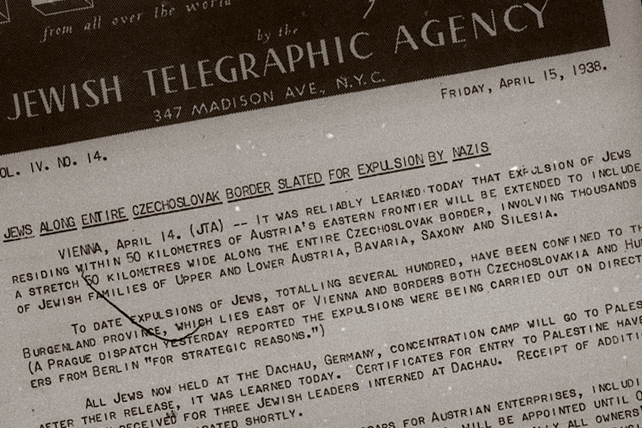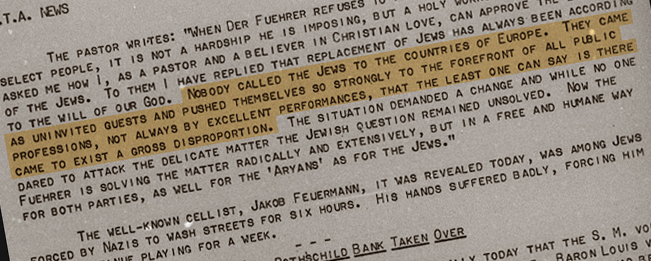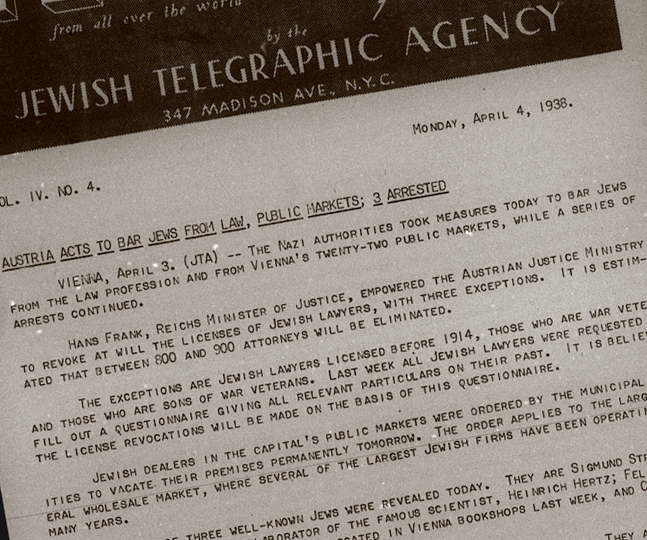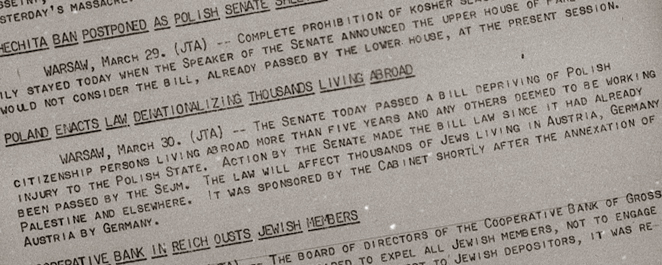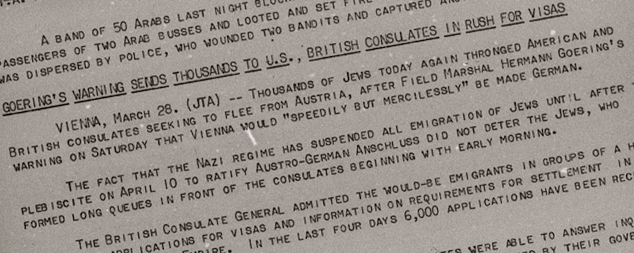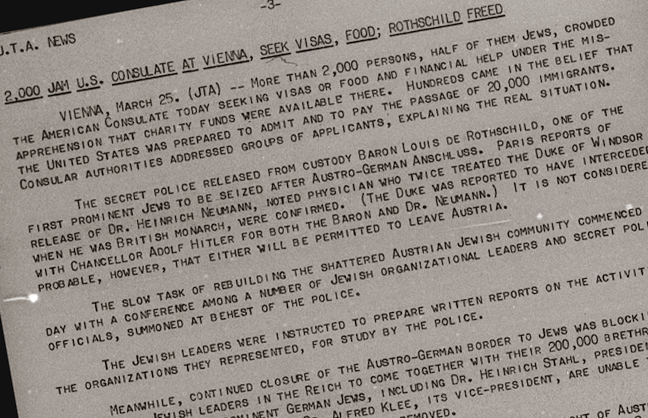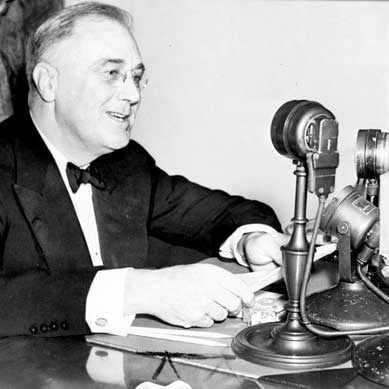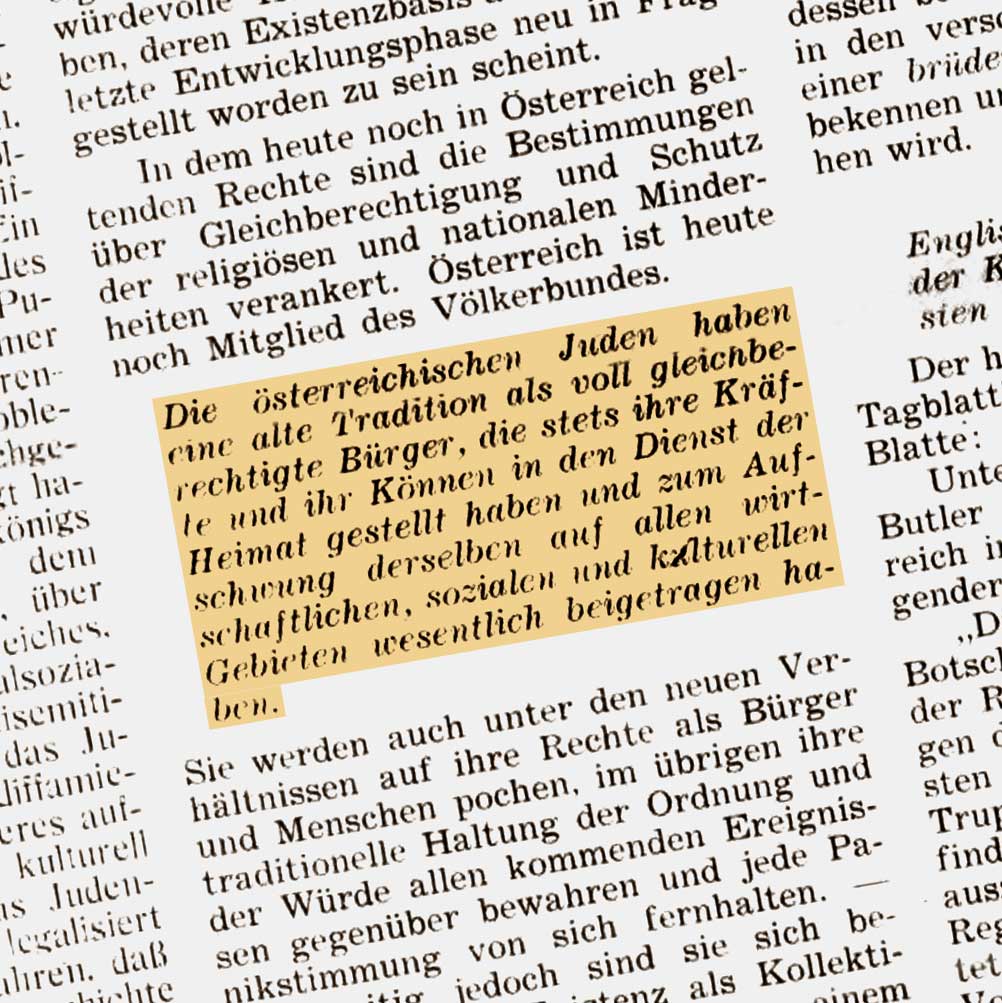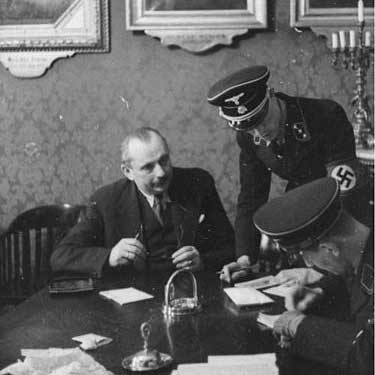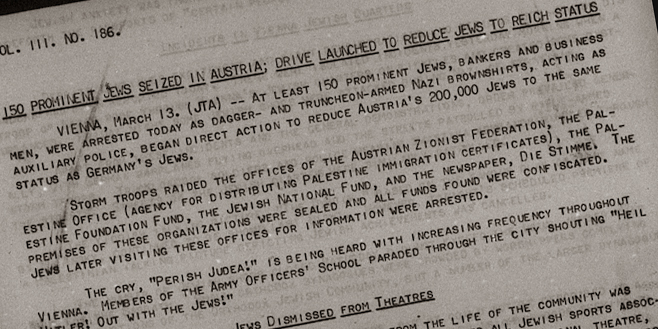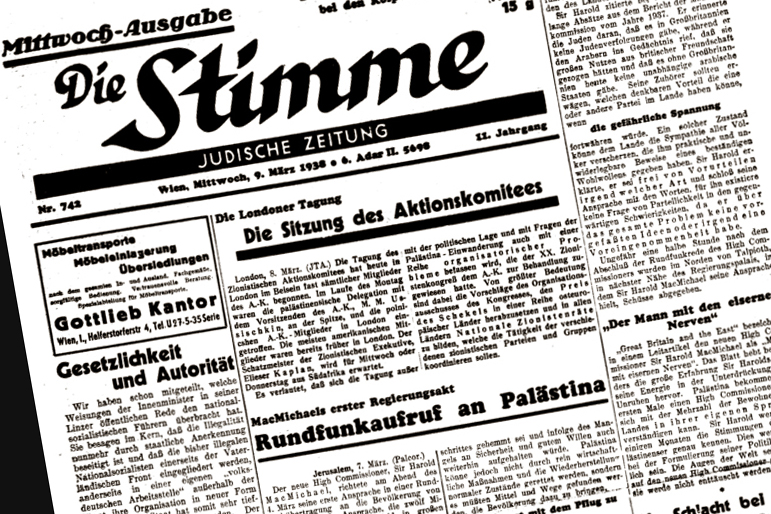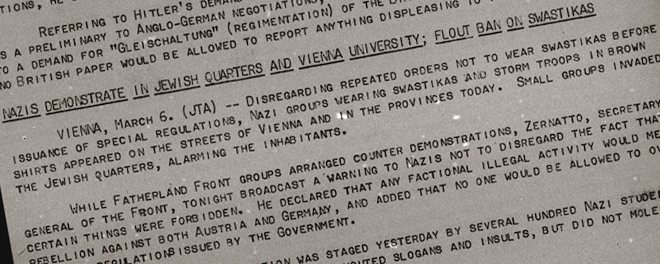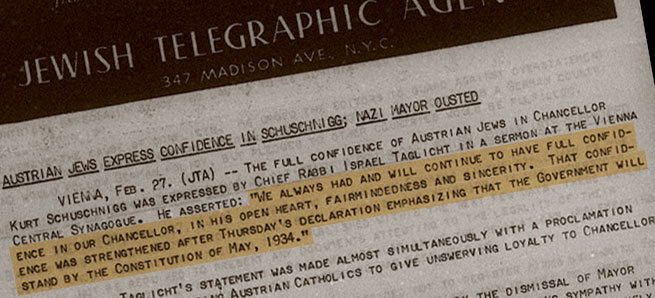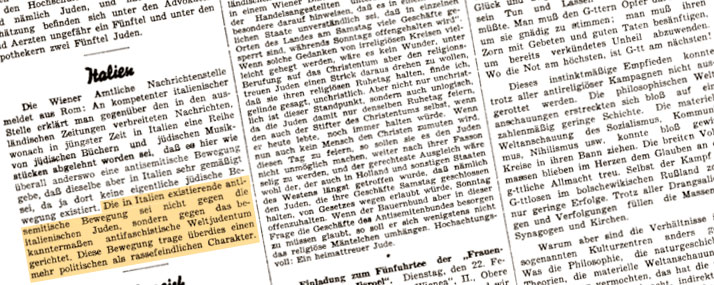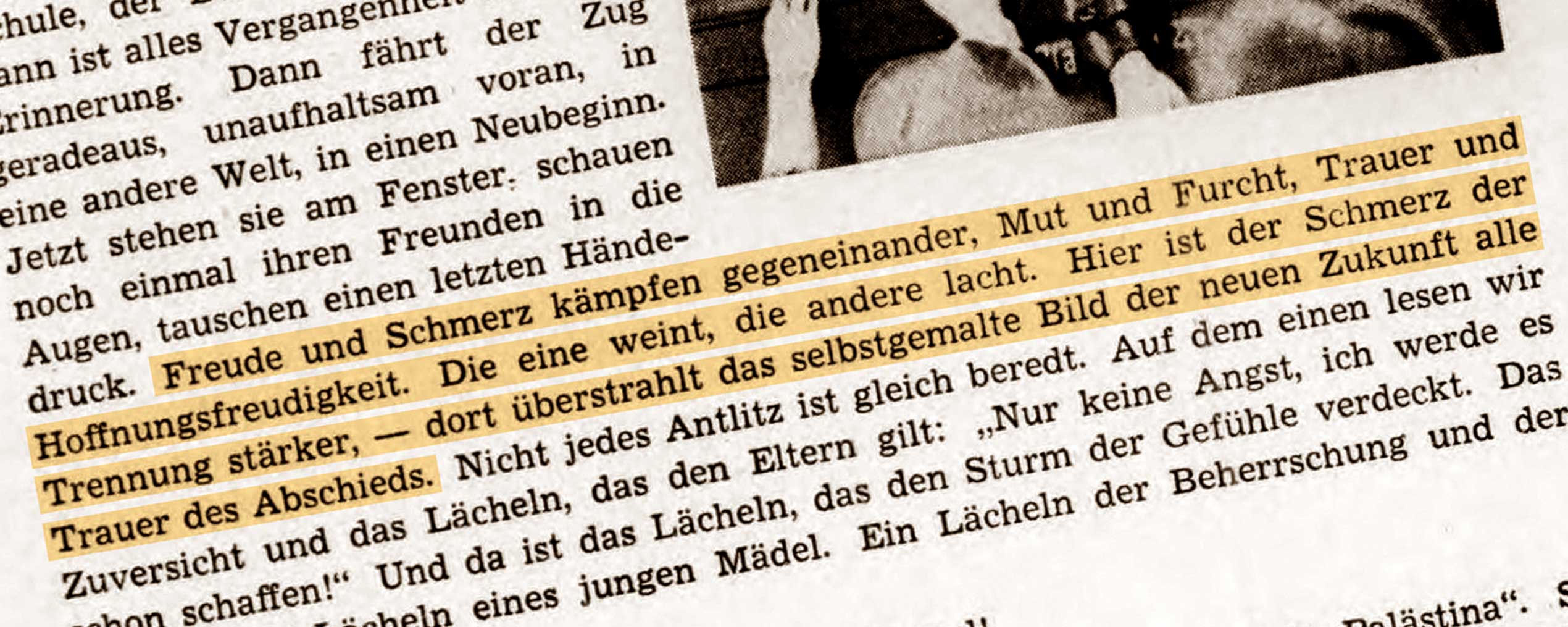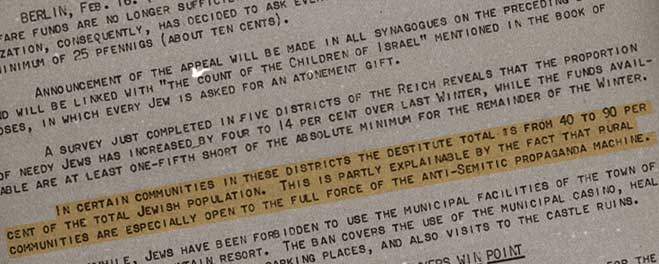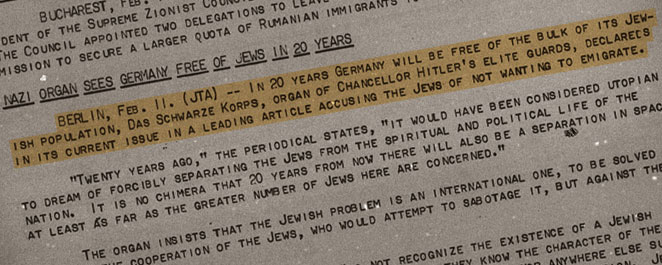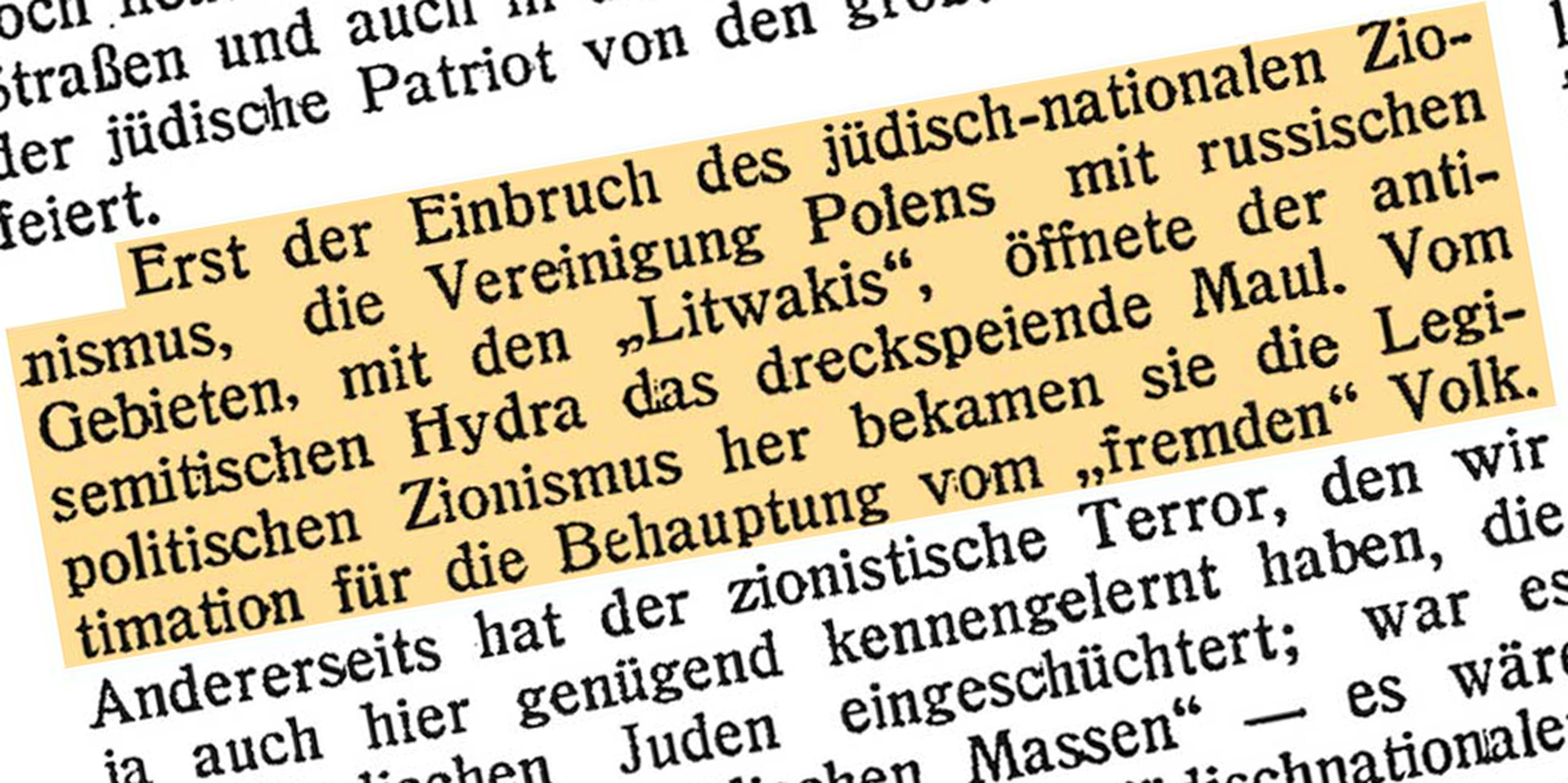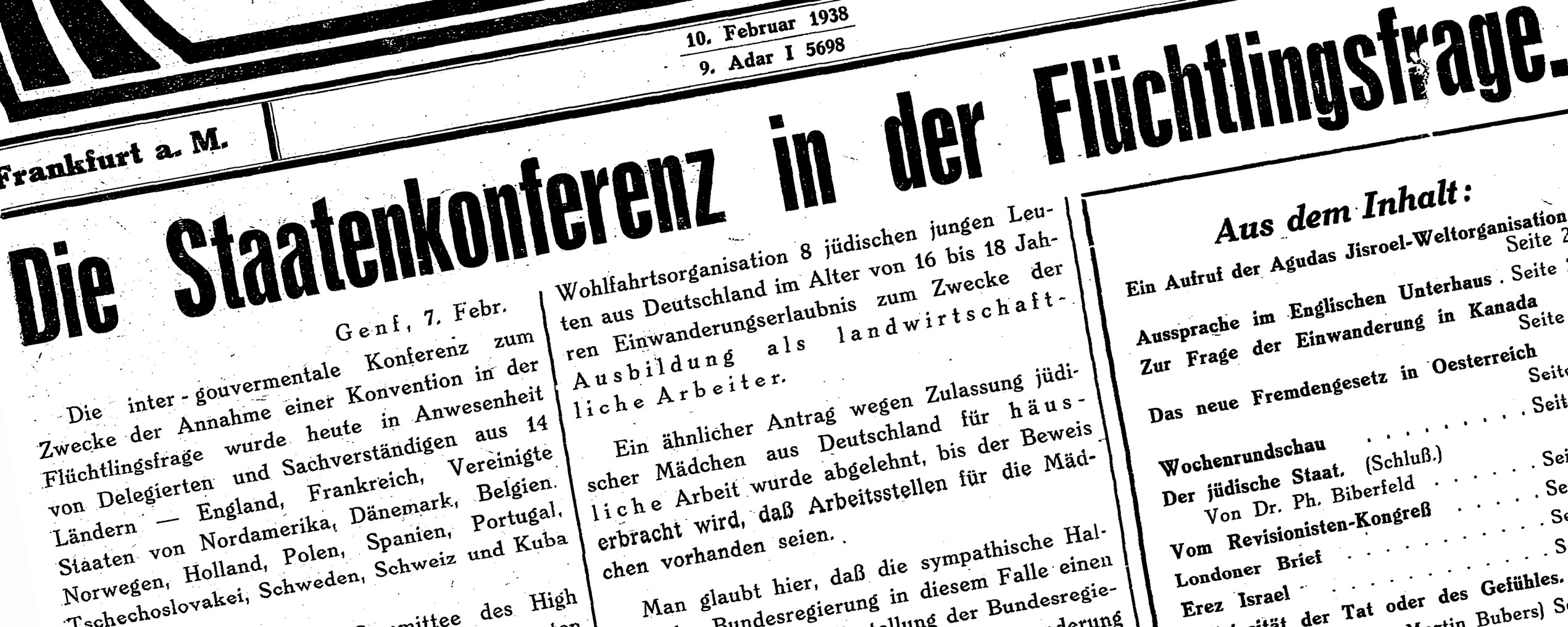The crowd looked on quietly
Shop windows vandalized with antisemitic graffiti
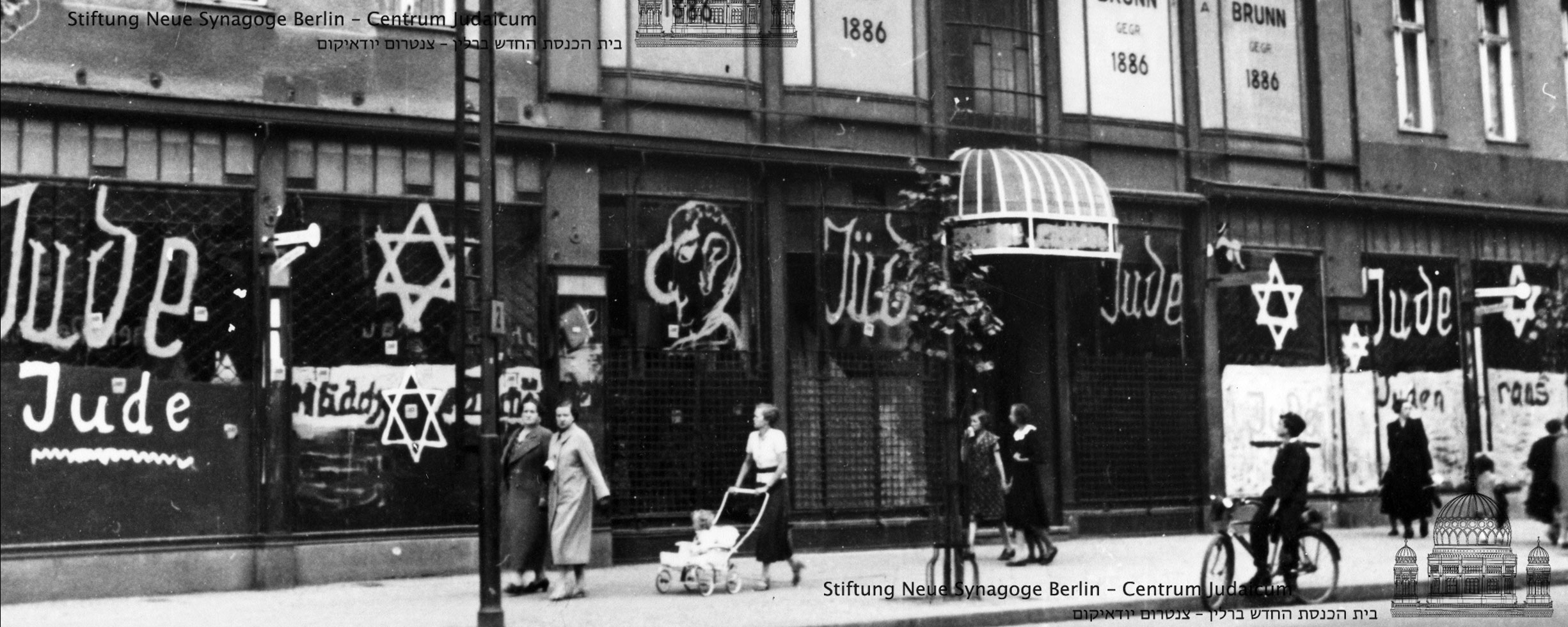
“The word ‘Jew’ was smeared in thick red letters on the window of every Jewish shop, sometimes with a Star of David added, to fix in the minds of Berliners that these were stores for them to avoid entering at all costs.”
Berlin
Section 17 of the Third Supplementary Decree on the Reich Citizenship law (Reichsbürgergesetz), issued on June 14, called for marking Jewish businesses at a date yet to be determined. The Nazis lost no time. According to this article by the Jewish Telegraphic Agency, days later, the word “Jew” and Nazi slogans were smeared on Jewish shop windows throughout Berlin in an organized fashion, with the same red, hard-to-remove oil paint used everywhere. There could be no doubt that the action was carried out with blessings from above. While no opposition from the non-Jewish population is recorded, the correspondent does point out that unlike in Vienna and in less affluent parts of Berlin, the crowd on Kurfürstendamm looked on quietly, without major enthusiasm. Tension among Jews was intensified by reports of plans to build labor camps where Jews apprehended in recent raids were to be put to work.
SOURCE
Institution:
New Synagogue Berlin – Centrum Judaicum 
Collection:
Original:
CJA, 7.103, 4
Source available in English
Institution:
Collection:
“Report: Labor Camps to Be Built for Arrested Reich Jews” 
Institution:
Institut für Stadtgeschichte Frankfurt am Main 
Original:
Archivsignatur: S7Z1938-31, Fotografin: Hannah Reeck








































